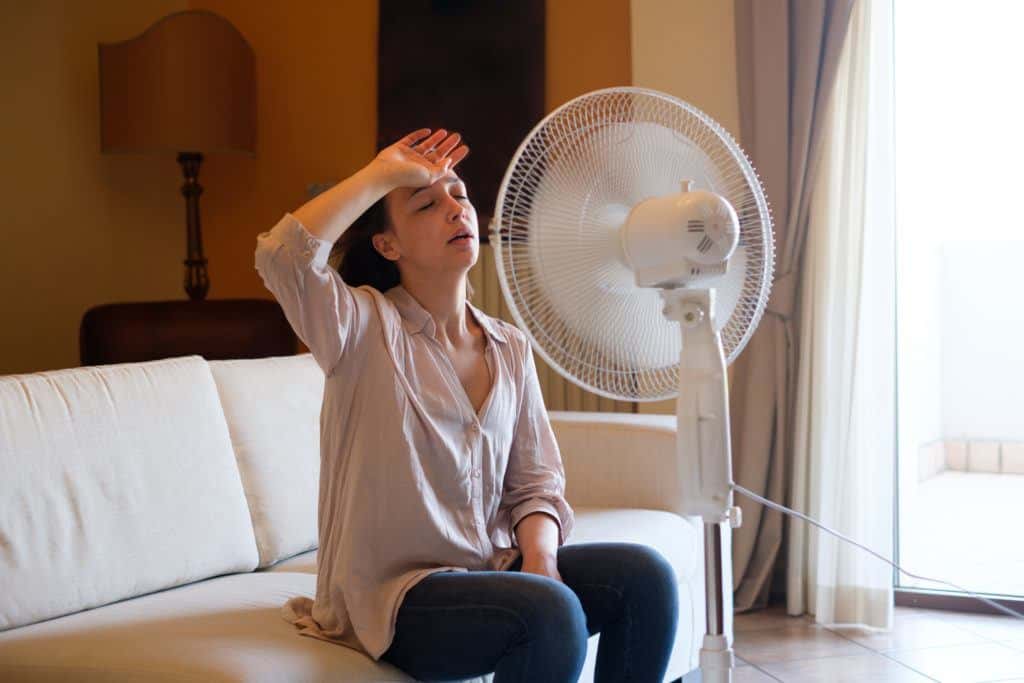Duration of Menopause Symptoms Varies From Woman to Woman
Most women are familiar with one of the major symptoms of menopause, hot flashes, in which normal body temperature rises and an intense feeling of heat suddenly flushes over the body. Hot flashes are usually accompanied by a red, flushed face and heavy sweating. Hot flashes at night are common and can include night sweats. However, many women are not aware that there are varied types of hot flashes, and that they may even last beyond menopause!
New research from the Study of Women’s Health Across the Nation, or SWAN, found that there are four types of hot flash categories classified with menopause symptoms, each with varied timing and duration. Of course, hot flashes vary greatly from woman to woman, but since awareness is key to treatment, recognizing and understanding each type can greatly help reduce the discomfort associated with hot flashes.
The SWAN study tracked a group of over 3,300 women from diverse racial and ethnic backgrounds. The study, sponsored by the National Institutes of Health, measured the physical, biological, and psychological health of these women from over seven research centers around the country. While actual menopause age varied, the study uncovered what hot flash symptoms many women can expect during this transition period of life, from perimenopause to postmenopausal.
Click Here to Try Hormone Imbalance Testing Today
Types of Hot Flashes
The first type of hot flash is known as “early onset,” with symptoms beginning to affect a woman anywhere from 5-10 years before her last period. While this annoyingly premature onset of perimenopause symptoms can be frustrating, they luckily subside right around the time of a woman’s final menstrual cycle. On the opposite end of the symptom spectrum, some women are known as “late onset” hot flashers; they do not begin to experience symptoms until right after their last period. A rarer group of women are known as the “lucky few” who either only experience a few episodes of hot flashes or never any at all. The last type of hot flashes affects one in four women, who are known as the “super flashers.” These women experience the full range of hot flash possibilities and then some, from early onset to post-menopause. They may rarely have a set “normal temperature range,” varying constantly instead.
Another study exploring hot flashes is a 2012 study published in the journal Obstetrics and Gynecology. This study found that the timing and duration of hot flashes is greatly influenced by a woman’s overall health. Women with high cholesterol levels, who consume excessive alcohol, or who were in poorer general health were more likely to suffer severe hot flashes. Race also seemed to be influential, as African-American women were more likely to be considered “super flashers.” However, while there were statistical trends in each group, the researchers noted that there was not enough sufficient data to conclusively point direct causation to the severity and onset of symptoms.
Reducing Hot Flashes With Bioidentical Hormone Replacement Therapy
Experts do know that regardless of cause, there are ways to reduce the severity and duration of hot flashes. Since cholesterol and lifestyle choices have been shown to play a role in symptom severity, choosing a healthy diet with limited alcohol intake can have a positive effect on symptoms. In addition, getting regular exercise and sleep can also help promote natural balance in the body, producing “feel good” hormones and releasing stress.
Bioidentical hormone replacement therapy (BHRT) is one of the best ways of treating hot flash symptoms because it addresses a woman’s whole state of health. The American College of Obstetricians and Gynecologists even reversed their earlier recommendation that women aged 65 and older should stop hormone replacement therapy due to the likelihood of menopausal symptoms returning. Instead of masking symptoms, BHRT works to bring a woman’s hormones into balance to benefit her overall health and thereby alleviate hot flashes and other menopause symptoms.
Contact a BodyLogicMD Physician Today
The expert physicians within the BodyLogicMD network are skilled at testing and monitoring hormone levels and creating a customized plan for women at every stage of menopause. Contact the BodyLogicMD physician nearest you to schedule an appointment and learn more about how hormone therapy can help reduce hot flashes and other menopause symptoms and improve overall health and wellbeing.

